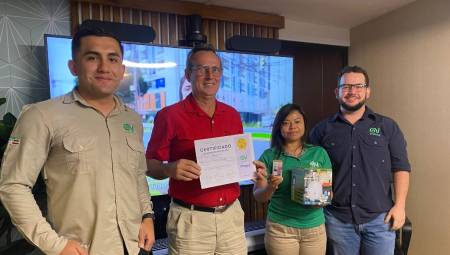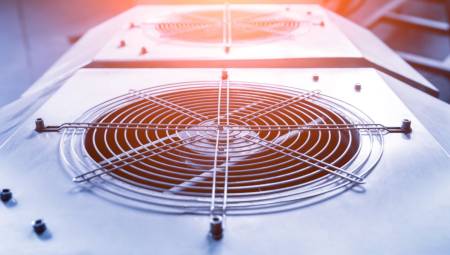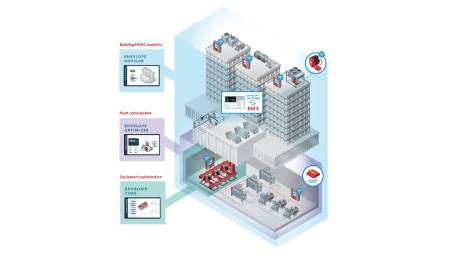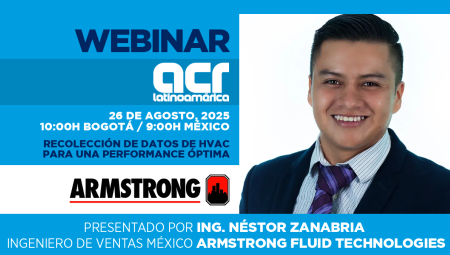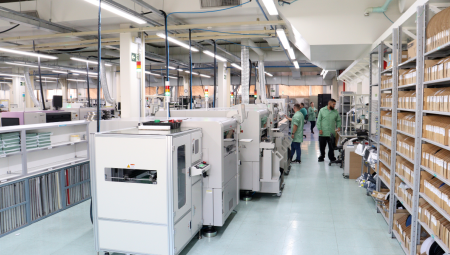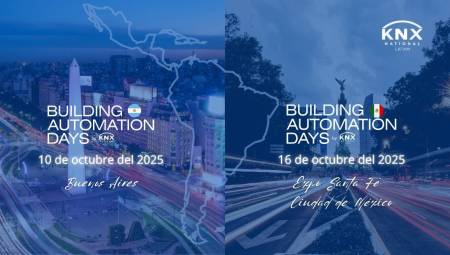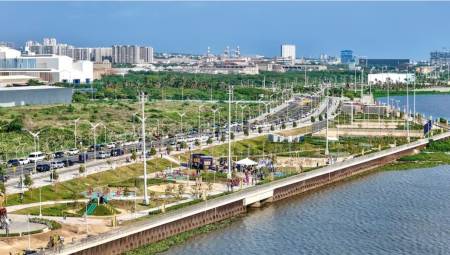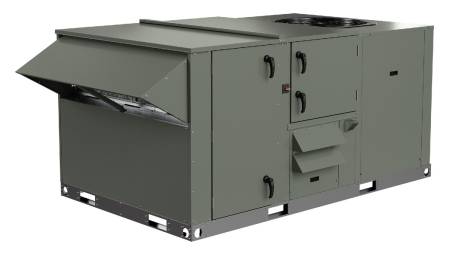 Like all other refrigeration sectors, the vehicle cooling industry has advances that make it indispensable and that allow many of the processes we take for granted to be carried out, with great precision.
Like all other refrigeration sectors, the vehicle cooling industry has advances that make it indispensable and that allow many of the processes we take for granted to be carried out, with great precision.
By: Diana Agudelo
In the past three decades, automakers have made great progress in controlling gasoline costs and reducing pollutant emissions, but the impact of these improvements on consumption has been limited by demands on dynamic performance. improved safety and more comfort (e.g. thermal comfort).
Due to these factors, the real levels of CO2 emissions in vehicles is still a problem to be solved and in a context in which road transport and above all, the issue that concerns us, refrigerated transport, is a large factor in the balance of greenhouse gas emissions, and in its concordance with international climate conventions is the key to understanding it.
To make this article we talked with Kenneth Salas, sales and service manager for Central America, Caribbean and the Northern Cone of Carrier Transicold, who helped us understand the situation of refrigerated transport in Latin America and its weight in the refrigeration industry in general.
The quality requirements that exist today in the production and handling of perishable products have increased the importance in the use of mechanical refrigeration transport systems. These systems seek to condition the environment of the product, so that the temperature contributes to maintaining quality. Mainly the uses of refrigerated transport extend to the food industry, but many other activities such as pharmaceuticals, florists, transport of live animals or handling of carcasses are part of the new uses of this industry and the diversifications it has reached.
Refrigeration distribution
The average number of vehicles with cooling systems is minimal, but has increased from less than 15 percent in 1995 to 25 percent by 2005. This trend that began as a standard in medium and high-end vehicles or as an option, in small vehicles, will continue to grow much more in the coming years and its production continues to be fundamental for some industries and for the transport of perishable products from one region to another.
This expansion in annual sales will be continuous with a penetration of 30 percent of these models, in Europe and the United States at the end of 2003 (latest data obtained). The progressive saturation is expected in the coming years and the calculation is that they will settle at 40 percent of the share by 2010, reaching distribution levels already seen in Japan and of course in North America.
This distribution in sales is a direct result of the decrease in prices in vehicles around the world, allowing the expansion of services within the vehicle industry seeking to increase prices for sumptuous expenses.
Expanding technology
Refrigerated transport equipment "removes, so to speak, excess heat within a space and provides temperature control for products as they are transported from one place to another. Refrigerated transport has evolved a lot since its inception, where only ice was used to maintain temperature.
Heat transfer, air handling, compression and electronics are currently the four fundamental pillars, where new technologies are constantly being developed.
Salas adds that "heat transfer; where we are constantly working on designs of new and better materials, is another of the fundamental points in the development of this sector of the industry. Our company, for example, uses a special copper tube called Cross-Hatched™ in all commercial, industrial and transport cooling condensers, which increases surface area and therefore efficiency."
Significant advances in aesthetics and sound have also recently been developed. For most people, the new units will sound half as loud as their predecessors. Improvements have been introduced through the use of acoustically manufactured panels that are designed to deflect and reduce sound emissions.
These technological developments result in a modern and bright unit with a significant improvement in sound quality and using a damage-resistant and easy-to-clean material.
But perhaps the most important advances that have been made are in the field of electronics, where the range of applications that are developed every day seems to have no end. For example, in trailer units the operator can select the analyst product, reducing errors and ensuring product quality and optimal equipment operation.
Messages in local languages are also used instead of fault codes and self-diagnosis systems have become increasingly sophisticated and accurate. Information logging and remote control systems are two of the most important.
The Latin American industry
The transport industry in Latin America, especially that of the transport of perishable land products, has grown in recent years, adapting its products and services to the particular needs of each of the countries that make up this part of the continent.
Our region is characterized by the diversity of cultures, societies and economies, some more developed than others, but all with a common need when it comes to transporting perishable products: having refrigeration equipment that is easy to install, operate and maintain in good condition.
Given this panorama, Keneth Salas affirms that "we can consider that the maturity of the industry is still low, especially if we compare it with markets such as Japan, the United States and Europe. The market trend may lean a bit towards the use of equipment with a very basic technology, mainly in the electronic area. However, it is very possible that, as the industry matures, this trend will set its sights on products with more and more added values that facilitate operation and reduce operating and service costs."
The refrigerated transport industry is closely related to population density, this implies that the most important markets are expected to be those where the number of inhabitants is greater, but we must not forget aspects of economy and political stability.
The refrigerated transport market in Mexico continues to be the most important in volume, we can also affirm that this country represents the most mature market, with increasing levels of knowledge and demand.
Brazil is the second largest market in the industry and its growth trend is considerable. Central America and the Caribbean have made great progress and today have an important participation within the region.
South America is perhaps the smallest market but has countries in full development or in other cases experiencing a great resurgence. Such is the case of Venezuela, Chile, Argentina and finally Colombia.
Environment as a touchstone
The two most important elements in terms of environmental protection in the refrigerated transportation industry are the use of friendly coolant and the control of gas emissions from diesel engines. The equipment today is manufactured mainly with R134a or R404 refrigerants, which comply with current international regulations.
In the case of gas emission, all equipment manufactured in the industry must comply with an emission standard, with dates already established and in accordance with its power. Engine and equipment manufacturers must certify new designs to a competent entity to meet this requirement. This standard (known as Tier), will require that gas emissions are less and less harmful to the environment.
In the table we show these dates and the requirements.
The use of standby allows to eliminate emissions from diesel engines, save fuel and reduce noise. This option is becoming increasingly popular due to the high cost of fuel relative to the cost of electricity.
A look at the needs
Transporting products at the correct temperature and at a reasonable operating cost with minimal disruption to operation is the main concern of customers.
"Our clients also show diverse and particular interests that depend on their own needs. Use of microcontrollers with self-diagnosis, precise controls of humidity, temperature and ventilation, constant data recording, remote monitoring via satellite, cell phone or via radio frequency", concludes Keneth Salas.
Other features and options that are needed to please the consumer are remote controls in the cabin, standardization of parts, lightweight and very aesthetic aerodynamic covers, equipment with environmentally friendly refrigerants also responds in part to customer demands.
To conclude, Salas is insistent in saying that "it is important to highlight the value that the service network brings to the refrigerated transport industry. The network fulfills the support work from the selection of the equipment, correct installation and configuration, to the preventive maintenance and repairs. Mechanics must be selected under a rigorous system and trained under the manufacturer's standards. The distributor maintains the inventory of spare parts, hours of operation and mobile service units to ensure the operability of the equipment."


